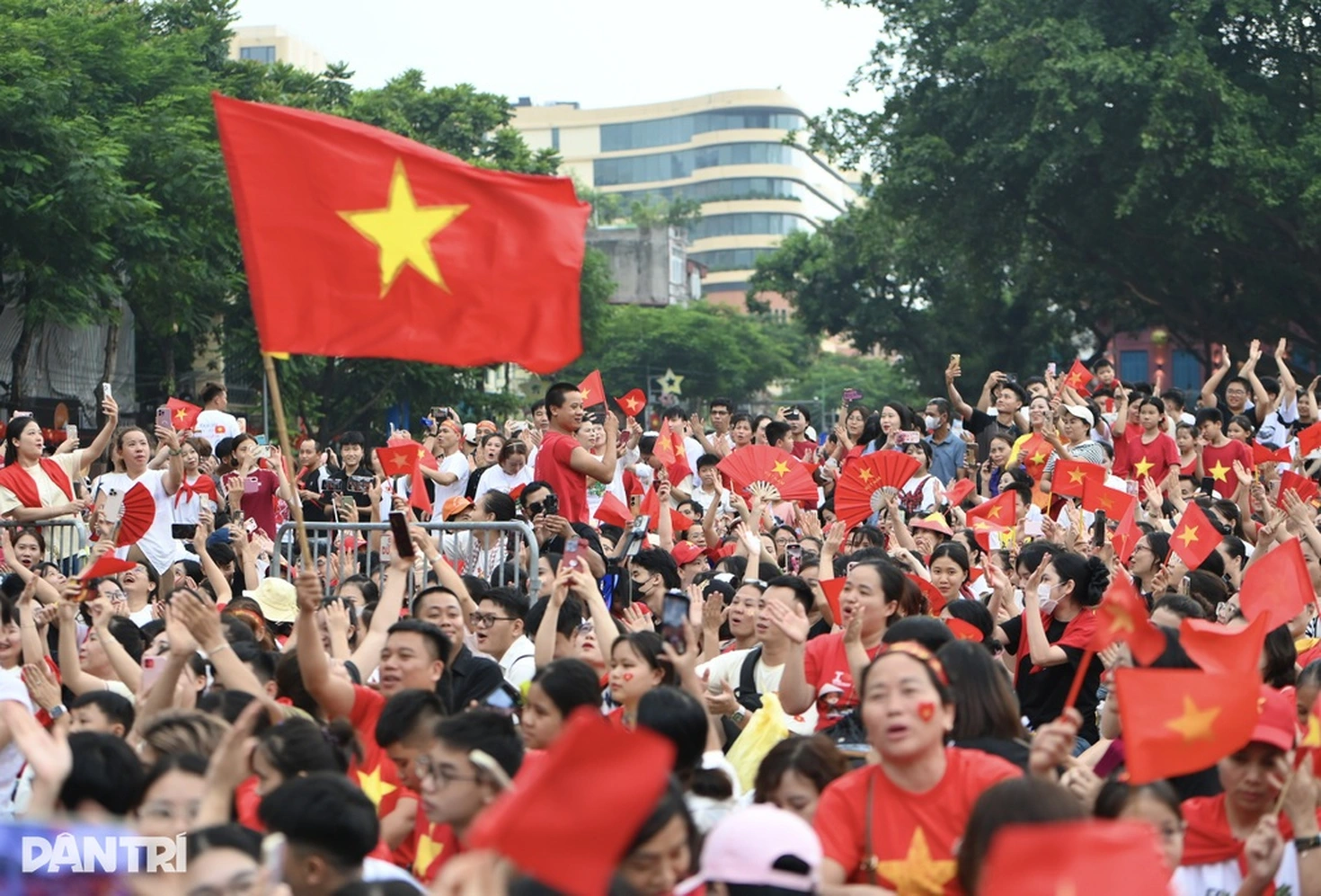
People watch the rehearsal of the military parade to celebrate the 80th anniversary of the August Revolution and National Day September 2 (Photo: Hai Long).
Dr. Oliver Massmann, General Director of Duane Morris Vietnam LLC, has more than 20 years of experience working in Vietnam. He was the first foreigner to give a presentation in Vietnamese to the Vietnamese National Assembly in 2016 on the impact of the Trans- Pacific Partnership (TPP) Agreement on the Vietnamese economy.
Dan Tri interviewed Dr. Oliver Massmann to record his perspective on Vietnam's development process and his recommendations as an influential international expert in Vietnam.
In more than 20 years working in Vietnam, how do you perceive Vietnam's development at present, compared to the first days when you set foot in Vietnam?
- I first came to Vietnam on June 6, 1991 and I took a cyclo to visit around Hanoi . I still remember that Hanoi had a lot of shelters and was a “post-war” city. At that time, my appearance was like a “giant” here. I couldn’t catch a taxi and I couldn’t see any tall buildings.
Now, I have homes in both Ho Chi Minh City and Hanoi, two of the most dynamic cities in the world . I am no longer one of the “giant” few. I can catch a taxi easily and the infrastructure has developed to an unbelievable level.
I still remember everything as if it happened yesterday. When I first started practicing law here, foreign investors had to go through many difficulties while working in Vietnam. People's lives were still difficult at that time and they worked diligently on a family scale.
Now, everything has changed. First, Vietnam joined the World Trade Organization (WTO), then came free trade agreements, big investors poured in, recognition of the LGBT community, women’s empowerment, a clear legal framework for investment.
In Germany, some changes can take hundreds of years, but in Vietnam it only takes 20-30 years.
Personally, I cannot point out the biggest change, because there are too many big changes in Vietnam. But if I had to point out only one thing, I would say that the process of Vietnam's international integration is what has impressed me the most.
In 1990, Vietnam was an isolated country under a US trade embargo and was among the poorest in the world. Today, Vietnam is a middle-income country and one of the most integrated countries with the most modern free trade agreements ever. Vietnam is a role model for developing countries.
That's amazing.
How do you evaluate Vietnam's socio-economic development vision as defined in the Resolution of the 13th National Congress of the Communist Party of Vietnam, especially the goal of becoming a high-income developed country by 2045?
- Vietnam's vision, especially the goal of becoming a high-income developed country by 2045, is extremely ambitious, clear and inspiring.
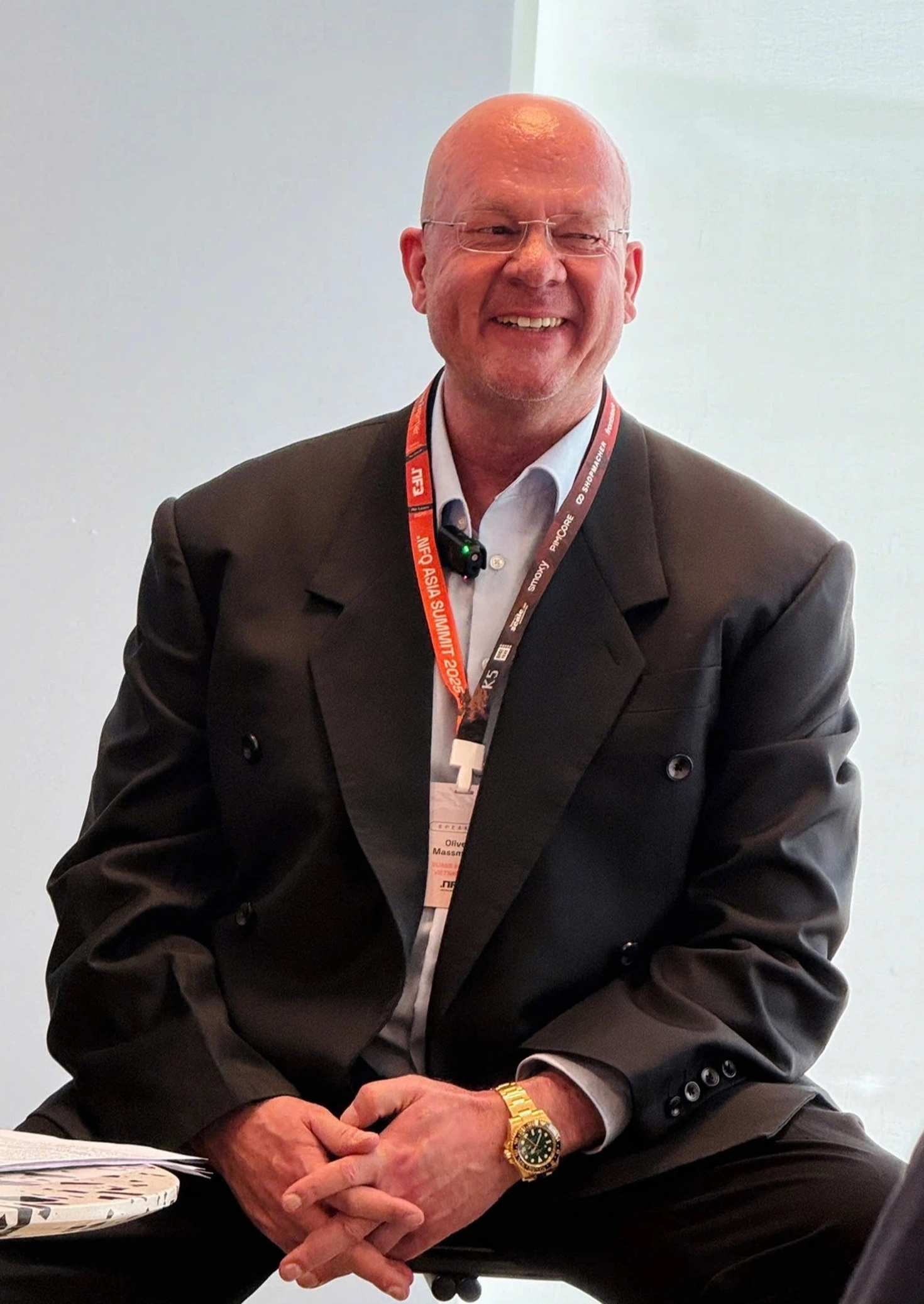
Dr. Oliver Massmann, General Director of Duane Morris Vietnam LLC Law Firm (Photo: NVCC).
This vision opens a long-term, strong roadmap, orients policy and builds confidence for both the domestic private sector and international investors. With the capacity of Vietnam and its people, I believe that Vietnam can achieve this goal.
I see that focusing on innovation, science, technology and high-quality human resources are the key drivers for Vietnam's growth.
I believe this focus is the right direction. At the same time, this vision also demonstrates a strong commitment to the transition from a low-cost manufacturing model to a knowledge-based, value-added economy.
This transformation is crucial to avoid the middle-income trap and achieve the goal by 2045, making Vietnam an important economic player in the Asia-Pacific region.
One of Vietnam’s important orientations is to develop the economy along with macroeconomic stability and ensure social security. From the perspective of an international expert, how do you assess how Vietnam has balanced these factors?
- In my opinion, Vietnam has achieved remarkable results in balancing these factors, especially when compared with other countries in the region.
The government has been very effective in keeping inflation low and stable while managing public debt below international safe levels. The high and sustained GDP growth rate over many years speaks for itself, showing that development is still accompanied by stability.
Most notably, the sharp reduction in poverty rates, coupled with significant improvements in life expectancy and educational attainment, shows that economic growth has gone hand in hand with successful social security.
The Government's proactive application of tax and cost reduction measures to support businesses and individuals during difficult times (such as the Covid-19 pandemic) further demonstrates its commitment to ensuring social security and market resilience.
Vietnam is making efforts to attract foreign investors, especially in the field of technology and innovation. As an advisor to many international corporations, what advantages does Vietnam have to attract international investment?
- First of all, Vietnam has one of the most impressive workforces I have ever seen. Vietnam has a young, dynamic and rapidly growing tech-savvy workforce. Vietnam is continuously training hundreds of thousands of IT and engineering professionals, building a solid foundation for fields such as semiconductors, artificial intelligence (AI) and software development.
Several recent laws have provided clear and attractive incentives for high-tech projects, including corporate income tax incentives and tax exemptions, indicating a national priority for this sector. Last but not least, the booming digital economy offers a large consumer market and a potential testing ground for new technologies and services.
You were a key advisor in the implementation of the Vietnam - EU Free Trade Agreement (EVFTA). How do you assess Vietnam's international integration process in recent years, especially after joining new generation free trade agreements such as the Vietnam - EU Free Trade Agreement (EVFTA) and the Comprehensive and Progressive Agreement for Trans-Pacific Partnership (CPTPP)? In your opinion, what should Vietnam do to maximize the benefits from these free trade agreements?
- Vietnam’s international integration process is unprecedented. By participating in new-generation free trade agreements such as EVFTA and CPTPP, Vietnam has positioned itself at the center of global trade flows.
To maximize the benefits of these agreements, institutional reform is required first. This means that the legal and regulatory framework must be revised to align with international standards. Moreover, changes are needed in specific sectors. For example, a world-class trade hub requires modern, efficient logistics infrastructure (ports, roads and digital systems) to reduce trade costs and speed up customs clearance times.
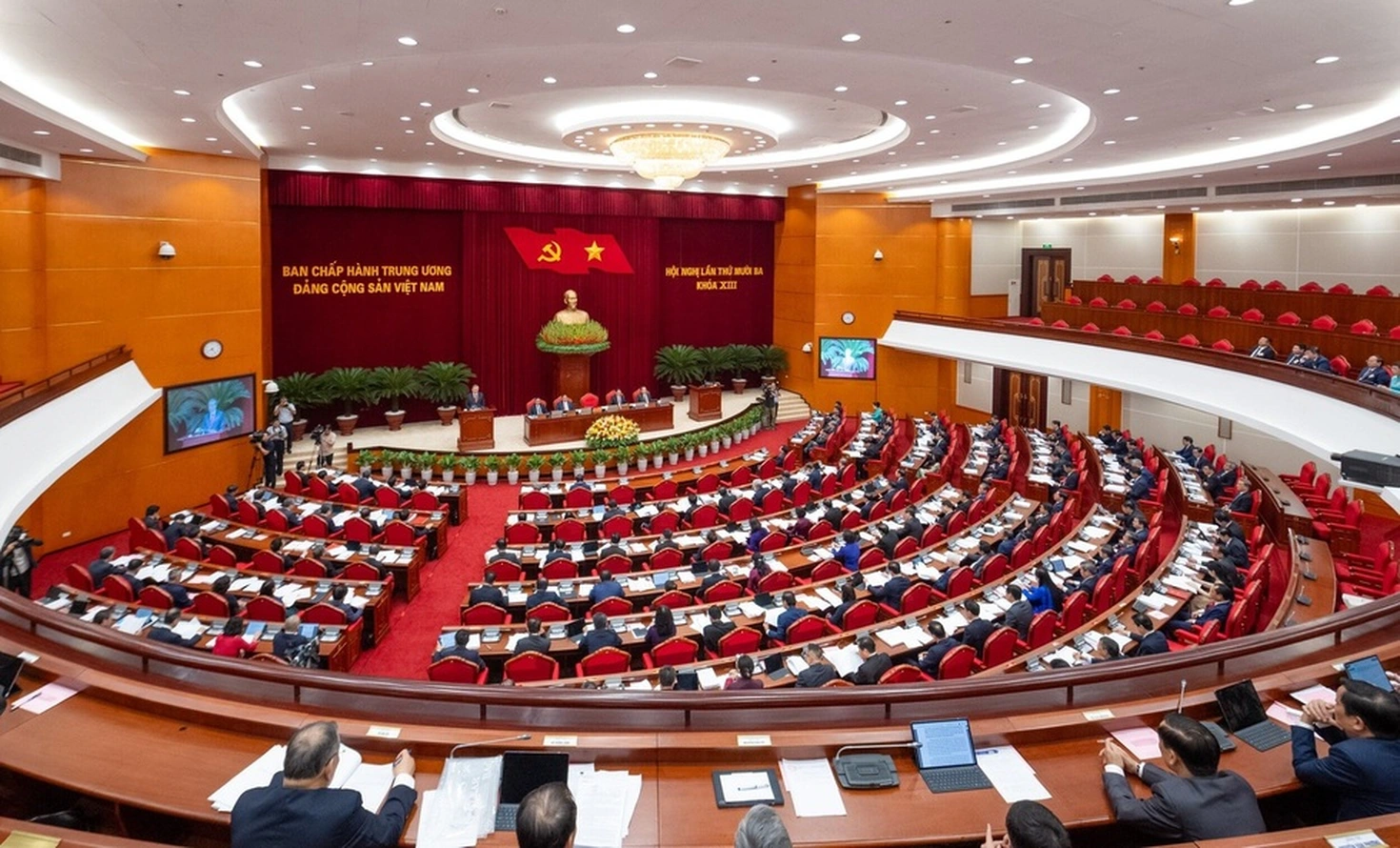
Panorama of the 13th Central Conference (Photo: VNA).
Vietnam has issued important resolutions to bring the country into a new era, including Resolution 68 on the strong development of the private economic sector. In your opinion, what turning point will Resolution 68 create for Vietnam's development process, especially in the economic field, in the coming time?
- Resolution 68 on private economic sector development marks a profound and historic turning point for the Vietnamese economy.
The resolution emphasizes the creation of a fair, competitive and transparent business environment , aiming to eliminate long-standing prejudices about prioritizing state-owned enterprises and some foreign direct investment (FDI) enterprises over domestic private enterprises.
At the same time, the goal of developing a large number of large-scale, globally competitive private enterprises by 2030 is crucial. These enterprises can drive industrial growth, act as anchors in global value chains and pioneers in science, technology and innovation, helping Vietnam build on the success of its regional neighbors.
In addition, the commitment to significantly reduce business costs and administrative procedures is a direct effort to make business operations easier and faster, while creating momentum for business activities.
Based on the experience of an international expert who has worked in Vietnam for many years, what recommendations do you have for Vietnam to continue improving its competitiveness, attracting foreign investment and developing sustainably?
- I have worked with thousands of foreign investors. And the most valuable “asset” for foreign investors is legal certainty. Vietnam needs to continue simplifying the legal framework, ensuring that central resolutions (such as Resolution 68) and international commitments are implemented consistently and effectively at the local and provincial levels, and further streamlining administrative procedures.
Vietnam has a unique workforce and this advantage needs to be maintained and improved. Vietnam can achieve this goal by continuing to improve its education system.
When it comes to sustainable development, it is important to note that Vietnam is working towards an ambitious net zero emissions target by 2050. This target is an important investment attraction tool. To achieve this goal, Vietnam should prioritize and encourage FDI in renewable energy, green manufacturing and climate-resilient infrastructure. This will not only support sustainable development but also meet the growing ESG (Environmental, Social and Governance) requirements of international investors and customers.
What made you decide to stay in Vietnam for a long time? Can you share your feelings when you became the first foreigner to speak before the Vietnamese National Assembly in 2016?
- Is there any other reason? It is the wonderful Vietnamese people. I always tell people that the Vietnamese are the most down-to-earth people ever. They are practical, hardworking, kind, friendly, humble. So you can’t help but love them. I love to see their growth, I love working with them, and I will continue to do so.
Regarding my speech before the Vietnamese National Assembly in 2016, I think that no words can describe my feelings. But one thing is for sure, I cried right there, after a National Assembly member came to congratulate me on my speech. It was amazing!
Thank you very much!
Dr. Oliver Massmann is a German international lawyer, financial accountant and auditor.
General Director of Duane Morris Vietnam LLC Law Firm and a foreign lawyer licensed to practice in Vietnam for over 25 years.
Leading expert in the fields of foreign direct investment (FDI) in Vietnam, international corporate tax, energy projects, infrastructure, M&A and trade and investment issues in Vietnam.
Key advisor to the European Commission in Brussels and the EU Delegation in Hanoi on the implementation of the EU-Vietnam Free Trade Agreement (EVFTA) for the 2021-2023 period.
Registered arbitrator of the Vietnam International Arbitration Center (VIAC).
Dantri.com.vn
Source: https://dantri.com.vn/the-gioi/chuyen-gia-duc-viet-nam-la-hinh-mau-cho-cac-nuoc-dang-phat-trien-20251106105427566.htm




![[Photo] Prime Minister Pham Minh Chinh receives Lao Minister of Labor and Welfare Phosay Sayasone](https://vphoto.vietnam.vn/thumb/1200x675/vietnam/resource/IMAGE/2025/11/11/1762872028311_dsc-2246-jpg.webp)




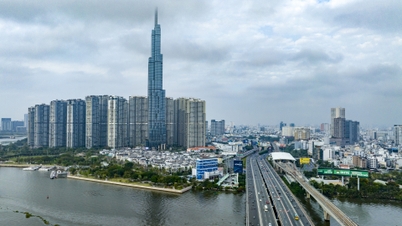









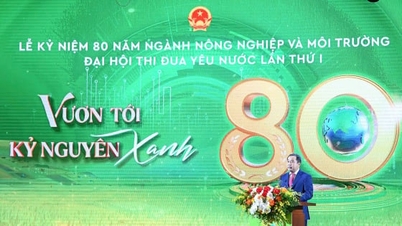




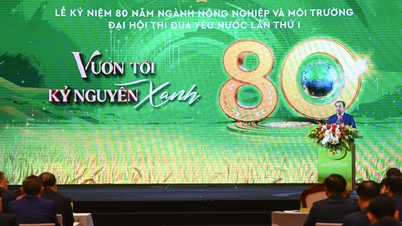





































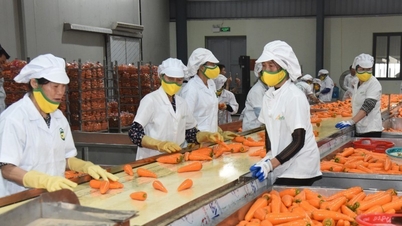

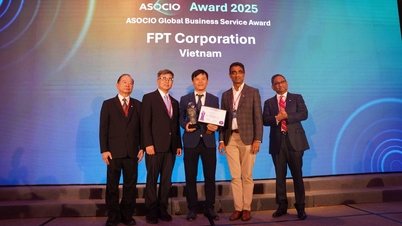












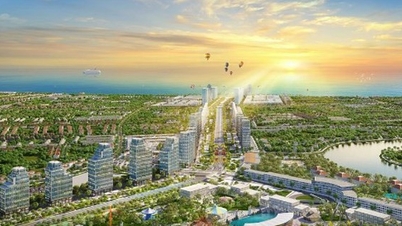

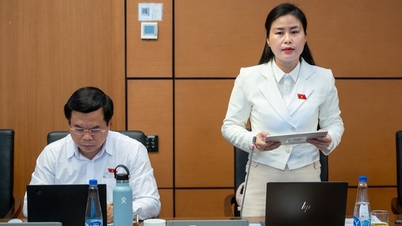
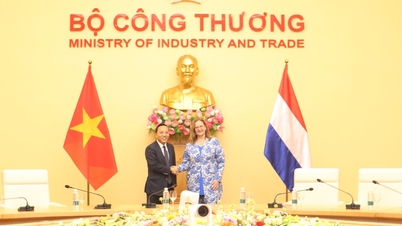


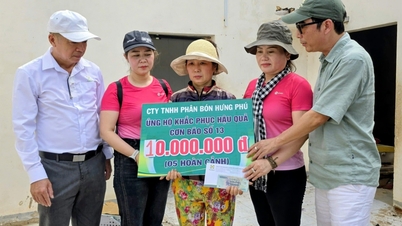
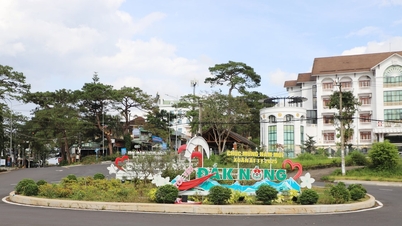




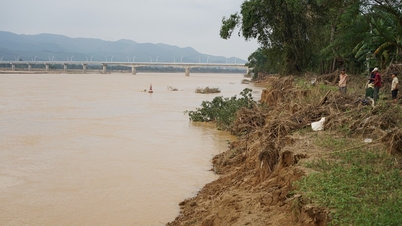

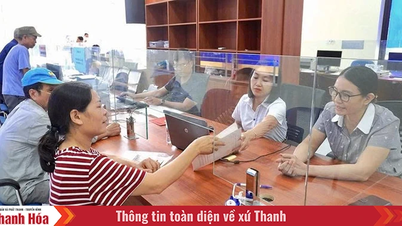



![Dong Nai OCOP transition: [Article 3] Linking tourism with OCOP product consumption](https://vphoto.vietnam.vn/thumb/402x226/vietnam/resource/IMAGE/2025/11/10/1762739199309_1324-2740-7_n-162543_981.jpeg)





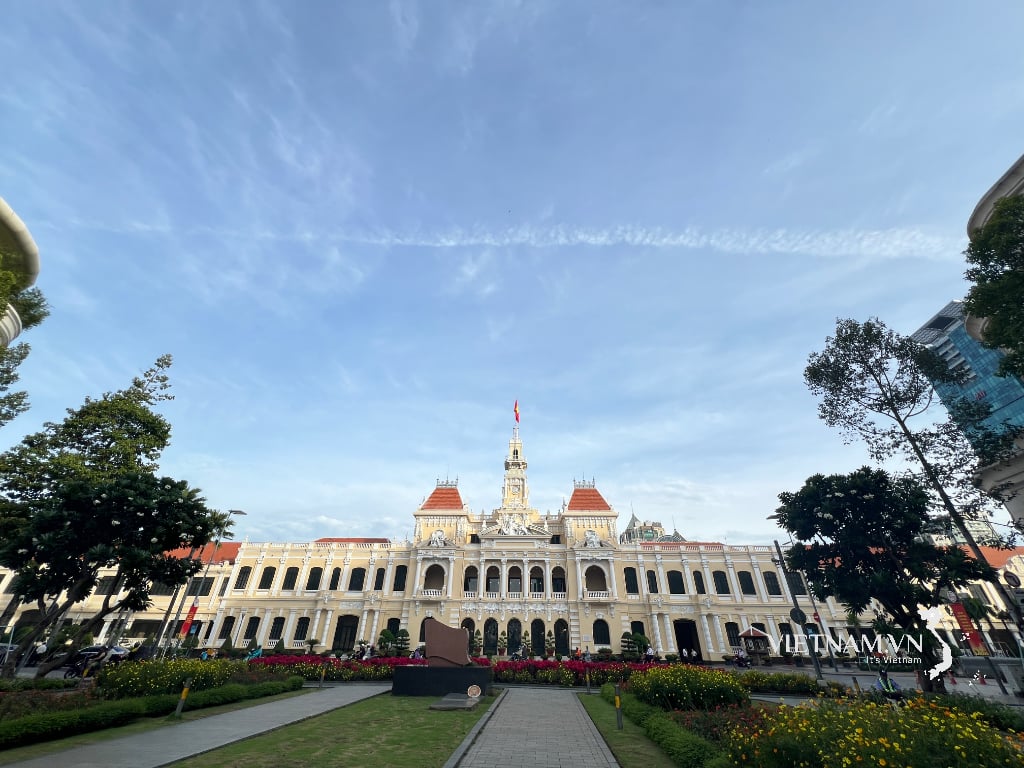

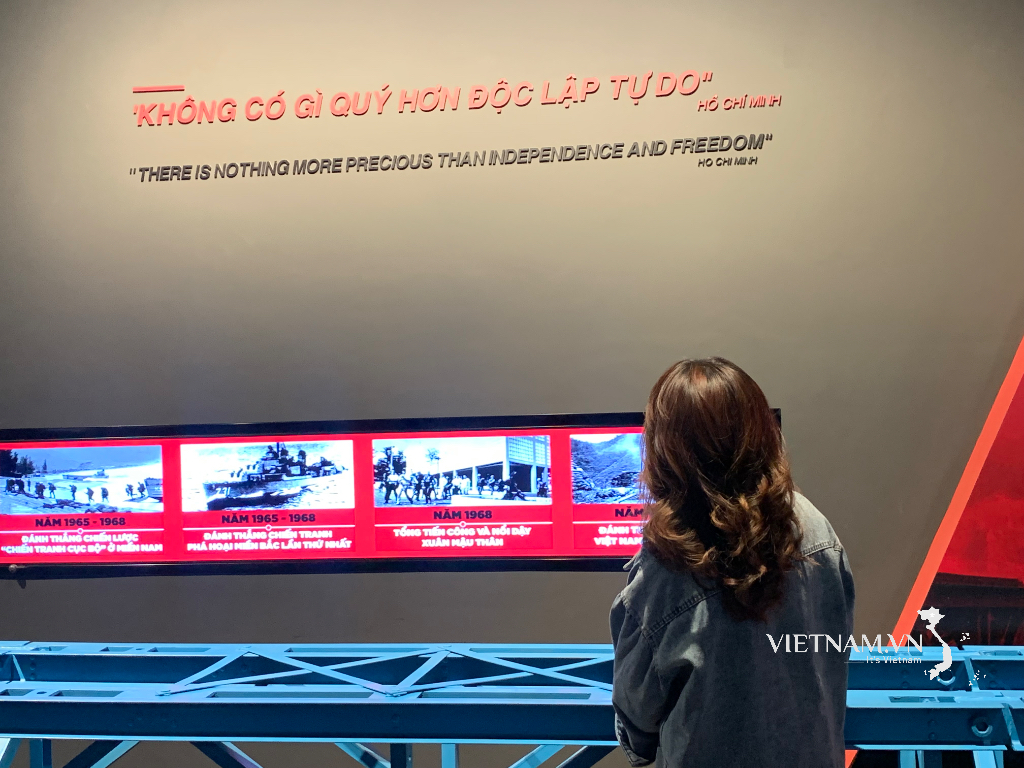
Comment (0)